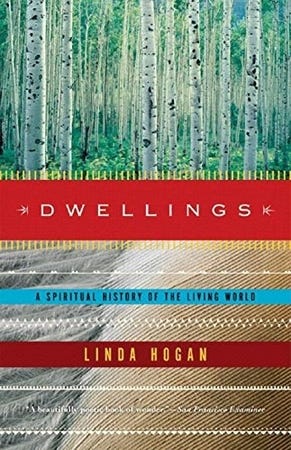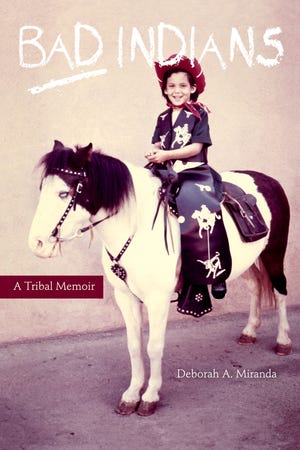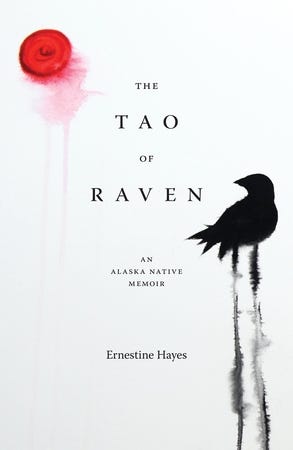Celebrate Thanksgiving—and beyond—with a reading list of Native literature
Since Thanksgiving is a time when the collective American imagination envisions a peaceful meal shared between colonizer and colonized, where both appear to share a mutual understanding and benefit, why not make this fantasy a reality by exercising some empathy-for-the-other muscles and read literary works written from their perspective?
My list has no blood quantum standards and is complete with rez and urban, past and present, perspectives alike, which I feel is the best way to represent the beautifully tangled complex mass that is modern day Native peoples. The struggles and perspectives mapped throughout these works are some I believe to be most relevant for a well tuned socio-political perspective. Many are more recent publications as the Native literary Renaissance is currently in full effect, morphing, evolving and reaching in ways the Native literary voice has never done before.

Perma Red by Debra Magpie Earling
Love is complicated no matter the setting, but the potential for love is most doomed in the place of Perma, Montana for the protagonist Louise in this novel set in the 1940s. Louise is described as a beautiful mixed blood Native girl coming of age on the Flat Head Indian reservation. Being mixed, lighter skinned, hair red-tinged, she has always been an outsider to the people of her reservation; nicknamed Perma Red, degraded and sexualized from an early age by everyone around her. The story catalogues her paradoxical existence, simultaneously craving acceptance and escape from the Rez. Sadly, it is only in the men who court her that exists her options towards acceptance or escape. Published in 2002, and winner of the 2003 American Book Award, this psychologically complex, empathic and intense novel, shows us the stark landscape of the Rez for a coming of age mixed blood Native woman — America’s fiercest yet absolute subaltern other.

Heart Berries: A Memoir by Terese Marie Mailhot
Terese Marie Mailhot’s memoir brought the trials of the modern Native woman into the current mainstream literary scene. In her 2018 debut, she blew open our missing narrative in one of the most striking ways one could — by publishing the journals she kept through her institutionalization during a mental breakdown after she lost custody of her first born son. It is no secret that colonialist structures put in place centuries ago still work to silence and psychically maim indigenous and First Nations Peoples, and with this memoir it is no longer something that happens in the back rooms of history. Heart Berries is now a New York Times Best Seller and was named one of the best non-fiction books of 2018 by TIME Magazine. Through her telling of her trials, family trauma, and a distinct type of oppression of indigenous women, Mailhot brings the long lost voice of the Native mother into the present, and she is screaming.
Terese Mailhot on How to Talk to Men, Children, and White People

Abandon Me: Memoirs by Melissa Febos
In this 2017 collection of memoir essays we travel with Melissa in uncovering her personal and cultural identity. We follow her through the breakdown of her toxic relationship with a married woman and the building of her relation with her long lost Native American father. Febos’ story is most powerful when working to convey the complex emotions involved in trying to reconnect with an absentee father — one whose history you can feel in your blood and the land all around you. Blood trauma is real and Febos makes us feel it. Febos works through memories, familial and personal, cultural myths, modern and ancient, sifted meanings, in order to understand the ontology of her being. To get closer to the kernel of her self, she points her investigations towards past abandonments. By looking at her life through sequences of losses, she hones in on herself alone. She frames abandonment without tragedy, but as a necessity to growth, a natural state of emotional evolution. Abandonment is nothing but the beginning of your own story, alone.

Men We Reaped: A Memoir by Jesmyn Ward
In Jesmyn Ward’s 2013 memoir she begins by telling us what she knows of her family’s mixed lineage. She is black, Choctaw, Haitian, and white, born and raised in Mississippi. She wants us to know what and where she is so we can understand something she has witnessed. With the complexes of race and place set firmly in her reader’s mind, she begins a slow recording of the tragic premature deaths of the men in her family. She wrote this for her brothers — blood and not. At once a coming of age and a history of familial tragedy, she is trying desperately to understand the structures of race, class, culture, and intergenerational trauma that has made survival so difficult for these particular men. Men We Reaped was named one of the Best Books of the Century by New York magazine, and through this deeply intelligent, thought provoking, and tragic memoir we are enabled to see how the American machine of racism, intertwined with subsuming classism and culture, is very present; and that the subtle and not so subtle ways it continues to eat men alive can no longer be ignored.

There There by Tommy Orange
Tommy Orange’s 2018 debut novel, long-listed for the 2018 National Book Award, is a braided narrative following the stories of twelve multigenerational urban Indians living in modern day Oakland, CA. It is a Pulp Fiction-esque novel with less debauchery and more tragedy. With each chapter being a new voice, the characters swirl together to create a vivid telling of mixed histories, politics, and lineages. The characters orbit around each other trying to understand their own identities within a harsh American underclass, continually stratified by poverty and violence. The trials they face are unrelenting yet their spirits stay strong, coming together in a final scene that will have your heart breaking with them all.
Tommy Orange Gives Voice to Urban Native Americans

Dwellings: A Spiritual History of the Living World by Linda Hogan
In 2007’s Dwellings Linda Hogan writes a natural history of American land, animals, spirits, and people. Her expositions show us how the natural world is an extension of the emotive dynamics of human history. The naturalism in Dwellings is concerned with how humans have imprinted on the land and animals and how the land and animals have imprinted on us, in vast subtle cycles. She reminds us that we have always already been linked to the land in this way. Hogan’s articulations of the natural world — its development, form, particular purposes and mechanisms — are all main characters, and the evolution of these characters can be seen to inform human endeavors. Everything in nature is interconnected and interdependent, and humans through history have either tried to fight this or let it lead them. In Dwellings, Hogan reminds us how nature must ultimately lead.

Bad Indians: A Tribal Memoir by Deborah Miranda
The stories of the California Native peoples are not too often heard. We learned in grade school about the Mission Indians but only of their life after capture and colonization, as if it had always been so. We spent pointless hours discussing and then recreating out of cardboard those Spanish Missions. In Deborah Miranda’s 2013, winner of the PEN Oakland — Josephine Miles Literary Award, part historical research project and part memoir, fragmented yet fluid and personal, we finally hear this history from the side of the indigenous peoples that lived through it. Miranda’s research into her family history, indigenous Californians, is the grounding cable for her to tell their collective tribal story. The book is full of photo slides, obtained through her meticulous research, as she writes to humanize the people within them; some of them her direct ancestors. Through Miranda’s poetic lyricism and objective research we cannot help but feel them through the lens.

Tao of Raven: An Alaska Native Memoir by Ernestine Hayes
Written in 2017 in her exceptionally crafted prose, Ernestine Hayes tells of the particular sort of survival of the Alaska Native after the war colonialism has enacted on them. Her language moves gracefully between memoir, fiction, historical research, Tlingit traditional stories, and metaphor, all complete as a war weary epic. She weaves her people’s story of the Raven and the Box of Daylight with Sun Tzu’s Art of War to create her own mythic language of strength and survival. Through her storytelling we see a real literary movement past any dry dictation of Native life after colonialism. Her epic language bestows a much needed grace to her people still living through all the effects that slow and steady genocide can have on such a secluded group of people. She creates the lyrics to walk her people out of the cycles of historical trauma, into the light of hope after war.
Wednesday Addams is Just Another Settler

About the Writer
Marlena Gates is Maricopa of the Salt River Pima-Maricopa Tribe of Arizona. She was born in Phoenix, Arizona but was raised in and currently writes out of the Stockton, California. She received her undergraduate degree in Psychology and Anthropology from University of California, Davis and her MFA in Creative Nonfiction from the Institute of American Indian Arts, Santa Fe. Her working project is a nonfiction collection of essays/memoirs grappling with poverty, mental illness, the quantum mind, and coming of age in an American post-industrial wasteland as an urban Indian.


Decolonize Your Bookshelf With These Books by Native American Writers was originally published in Electric Literature on Medium, where people are continuing the conversation by highlighting and responding to this story.
Source : Decolonize Your Bookshelf With These Books by Native American Writers











